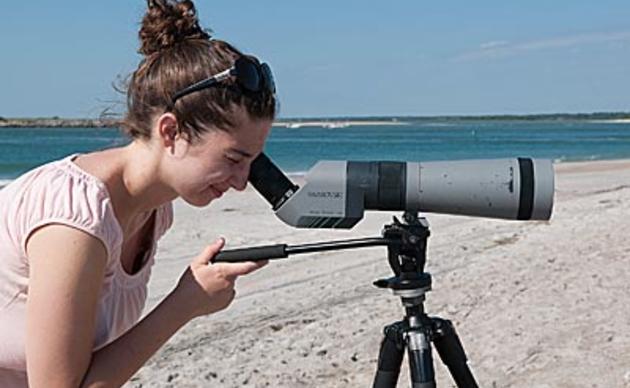Coast Watch: Agencies Oppose Figure Eight Groin
The first test case of the new law allowing up to four "terminal groins" to be built along North Carolina's barrier islands is running into trouble.
The U.S. Fish and Wildlife Service has recommended that the U.S. Army Corps of Engineers deny a permit to the Figure Eight Island Homeowners Association's proposed "terminal groin" on that privately-owned island. The FWS reaction came as part of various agency and public comments on a draft Environmental Impact Statement (EIS) for the proposed groin and seawall on the island. Other agencies and groups expressing either serious concerns or outright opposition include the National Marine Fisheries Service, the N.C. Division of Marine Fisheries, the Audubon Society, the Southern Environmental Law Center, and more.
On a barrier island sandy shoreline like North Carolina's coast, oceanfront groins (long rock structures extending into the surf) are known to increase erosion elsewhere by catching sand from the alongshore currents and waves, reducing its availability down-drift. When located near inlets ("terminal groins"), as in this case, they can also interfere with juvenile fish movement through the inlets. Most coastal conservation advocates vigorously object to "beach hardening" structures such as groins and seawalls as a known failed technology which at enormous public expense provides only short-term benefits to a few private owners, while damaging others and creating severe environmental problems to the barrier island ecosystem.
Some of the Figure Eight property owners want the groin and seawall, seeing it as way of protecting their property from erosion. However, other property owners oppose it either because it would increase erosion or direct interference with their property, or because of concerns about the broader adverse environmental impacts.
The Corps of Engineers must consider all the comments prior to determining whether the draft EIS adequately addresses all the environmental concerns for this project.
How you can help, right now
Donate to Audubon
Help secure the future for birds at risk from climate change, habitat loss and other threats. Your support will power our science, education, advocacy and on-the-ground conservation efforts.
Sign Up For Our eNewsletter
Keep up-to-date on all that happens with Audubon North Carolina's research, events and volunteer opportunities.




